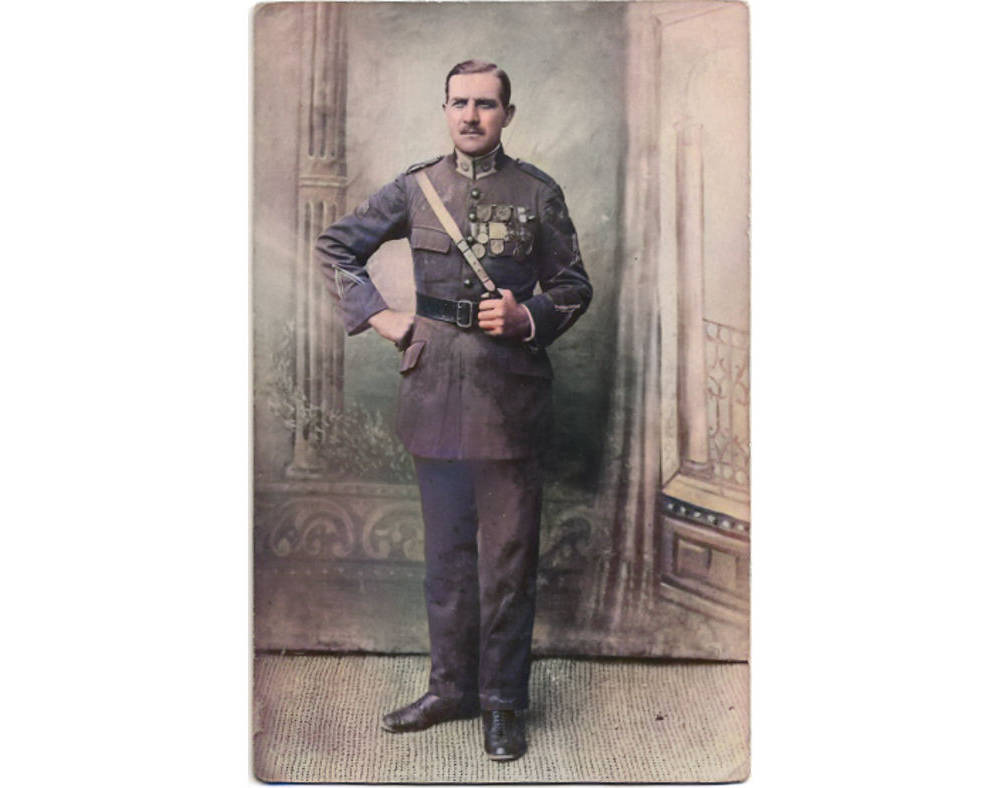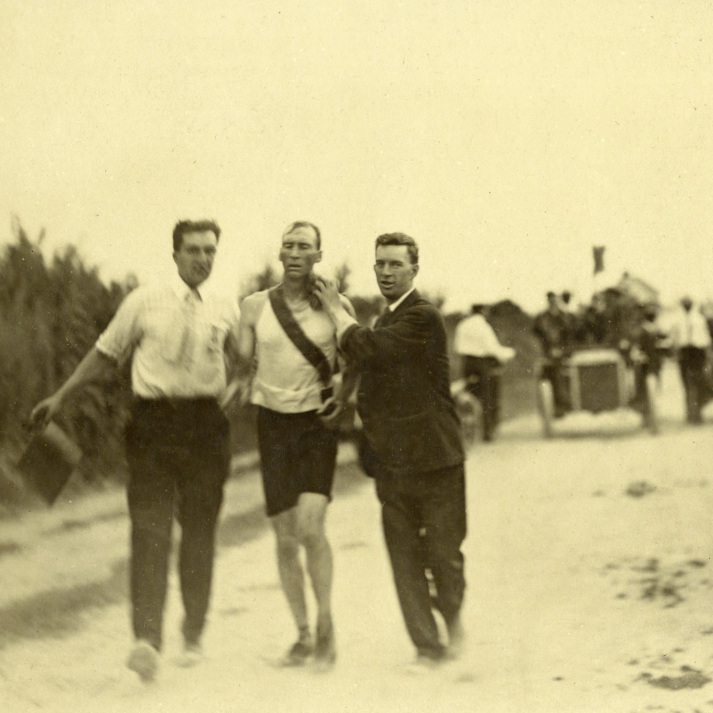
Naissance à Meursault / Birth at Meursault
Albert Corey est né à Meursault le 16 avril 1878, de parents propriétaires-vignerons. 1878 est l'année de l'arrivée du phylloxéra à Meursault et en Côte d'Or. Sa famille part pour Charenton-le-Pont où Albert suit des études de comptabilité puis rejoint l'armée en 1896 où il est incorporé au sein du huitième bataillon de chasseurs à pied. Dixième au Marathon de Paris en 1901, septième à l'édition 1902, Corey obtient d'honorables performances en course à pied. Il fait le mur en 1902 et rejoint les Etats-Unis. / Albert Corey was born in Meursault on April 16th, 1878, to owner-winegrower parents. 1878 was the year of the arrival of phylloxera in Meursault and in the Côte d'Or. His family moved to Charenton-le-Pont, where Albert studied accounting, before joining the army in 1896, where he was drafted into the eighth battalion of light infantrymen. Tenth at the 1901 Paris Marathon, and seventh the following year, Corey achieved honorable performances in running. He played hooky in 1902 and went to the United States.




